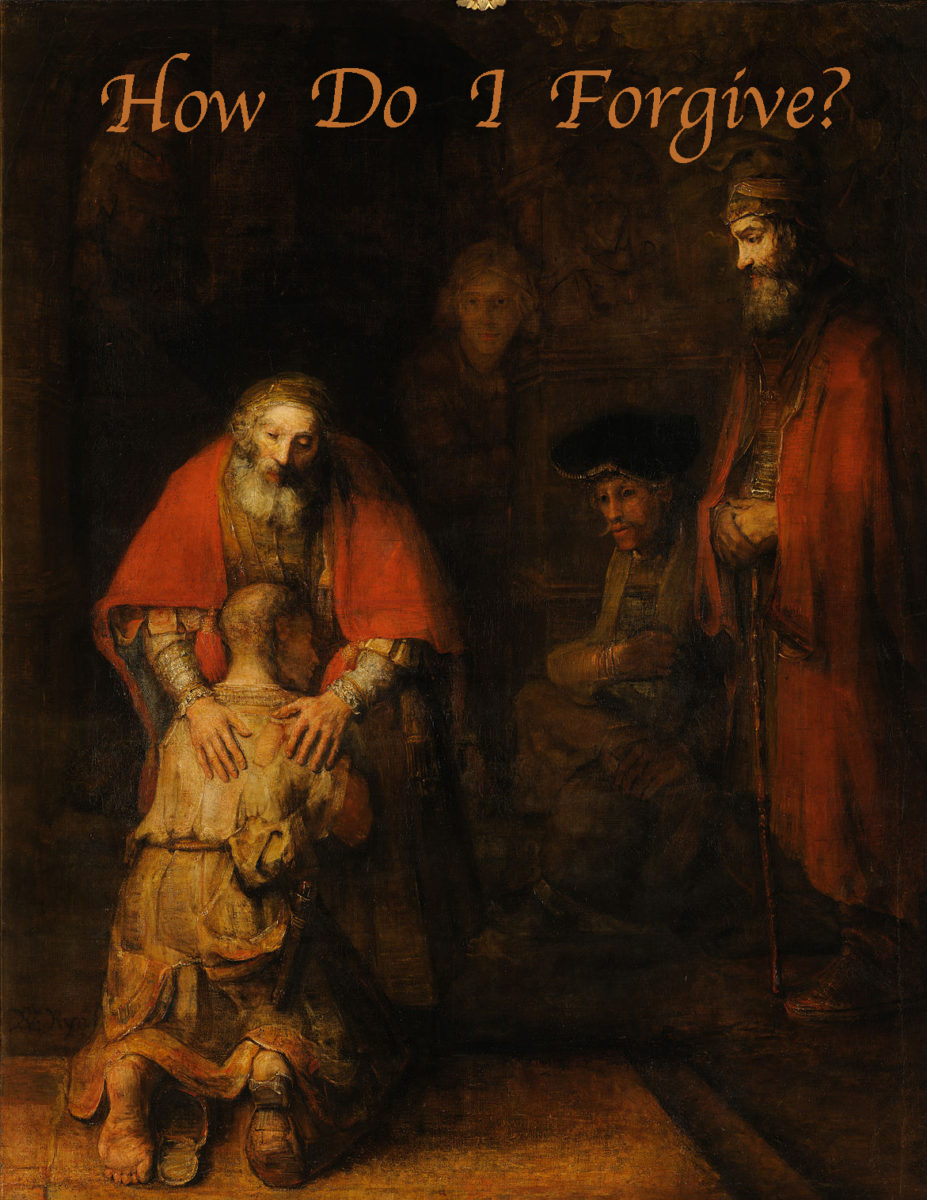Forgiveness is a craft; a skill that requires different tools for various situations and time to become facile with those tools. Developing your skills requires that you learn how and when to use what tools. There are three fundamental skills in the craft of forgiveness that every craftsman needs. As you practice the fundamentals over and over, even as situations become more complex, you will have the facility to apply the right skills at the proper time.
First, there is the skill of cover up: forgiving by overlooking. Proverbs 19.11 says, “The discretion of a man makes him slow to anger, And his glory is to overlook a transgression.” Overlooking here means that he passes over it, not making an issue of it, and refusing to hold bitterness. Not every sin can be overlooked. You must discern if the sin or offense needs to be addressed. Ken Sande in The Peacemaker gives good questions to help you discern whether or not overlooking is appropriate. “Is the offense dishonoring to God, affecting this person’s witness and the name of Christ? Is it damaging to the relationship? Is it hurting others? It is hurting the offender?”
The action of overlooking is rooted in how God deals with us. God knows every sin of thought, word, deed, and affection, but he doesn’t reveal them all to us at once. However, he continues to love us and be at peace with us because of our union with Christ. There are times we can do this as well. Not every little offense is worth confronting.
Another skill that must be a part of the craft is ‘fessing up: confessing sin. Confessing is agreeing with and admitting to the fact you have not acted right. Confessing is owning your responsibility in the situation. Once again, Ken Sande is helpful in understanding confession when he gives us the “Seven A’s of Confession.”
1. Address everyone involved.
The nature of the sin determines the extent to which confession must take place. You are responsible for the damage caused through your sin, whether it is just between two people or if it involved a wider public.
2. Avoid “if,” “but,” and “maybe” in confession.
These are wiggle words, words that try to wiggle out of some or all of the responsibility. “If I did you wrong….” If it has been clearly shown that you’ve done wrong, there is no “if” about it. “I did this, but it was because….” Here you are wanting to soften your culpability. Someone may have provoked you. That can be addressed later, but no one made you sin. Own it completely. “Maybe I sinned against you….” As with “if” there is no “maybe” if the sin is obvious. “What I said was wrong. I shouldn’t have said it.” That’s a confession.
3. Admit specifically.
“I did some bad things” is not owning the specific sin that you did. If you lied, confess that you lied. You can’t sin retail and confess wholesale. Deal with the specific sin.
4. Acknowledge the hurt.
“I know what I did hurt you and hurt our relationship.” In this, you are confessing your culpability for the damage caused. You have sinned against a person not an unfeeling machine. Confessing the damage is one step in the process of healing.
5. Accept the consequences.
Confession is the first step in accepting responsibility, but it may not be the last. There are consequences to your actions. A person who humbly confesses and desires forgiveness and peace accepts those consequences. Acts of restitution may be necessary to restore peace. Genuine confession and the desire for peace accept that responsibility.
6. Alter your behavior.
Confession needs to be coupled with repentance. Your willingness to confess doesn’t give you the license to continue to sin again and again. Confession and forgiveness have the goal of peace. Peace only comes when that which causes the disruption of peace–sin–is subdued. If you are to have peace, you must change your behavior.
7. Ask for forgiveness.
There are times that “I’m sorry” is appropriate. “Please forgive me” is more difficult to say because it acknowledges that I am in your debt and at your mercy. “I’m sorry” sort of implies that this was an accident; that I accidentally bumped into you. “Please forgive me” acknowledges that I actively sinned against you and need you to be merciful to me, releasing me from the debt I owe you.
The third skill involved in forgiveness is owning up: being accountable for your actions. Forgiveness and accountability are not antithetical. Accountability is living up to or calling someone else to live up to his responsibilities. If our relationships are to be characterized by peace, we must be accountable for our actions.
Being accountable for our sins involves taking concrete acts of repentance that will help heal the damage you caused by your sin. In God’s law, he gave his people ways to rectify wrongs when property had been damaged or stolen. Restitution had to be made. This didn’t mean that God was teaching them to be unforgiving. He was teaching them how to grow up and accept responsibility for their actions so that they could live in genuine peace with one another. If a person in a relationship never fulfills his responsibilities, he is a covenant-breaker and puts an unbearable strain on the relationship so that it cannot last. We are not created to live in relationship with only one of the parties being responsible for being faithful. We are created in the image of a Three-in-One God, each member owning his responsibility faithfully so as to live in peace.
These are some fundamentals of forgiveness. Opportunities will arise for you to use them. Use them wisely and grow in the craft of forgiveness.














